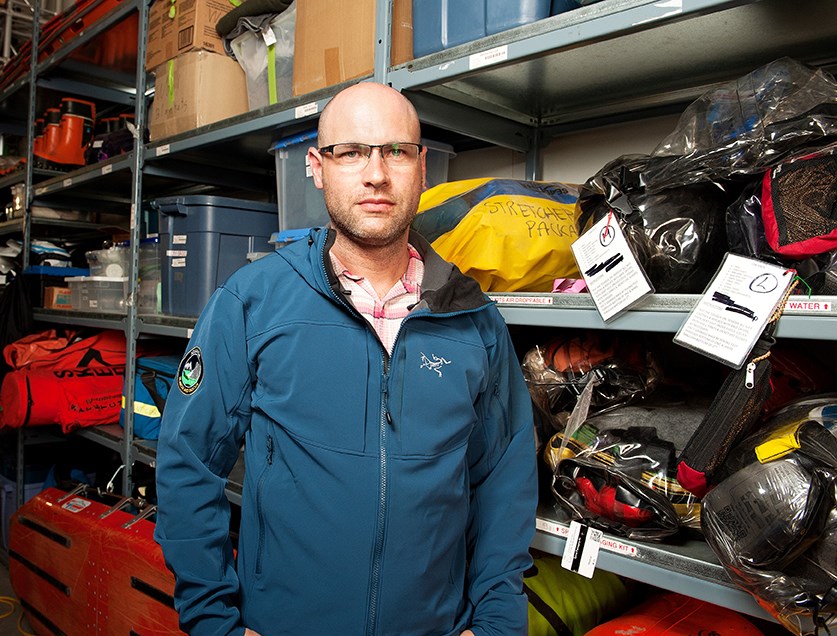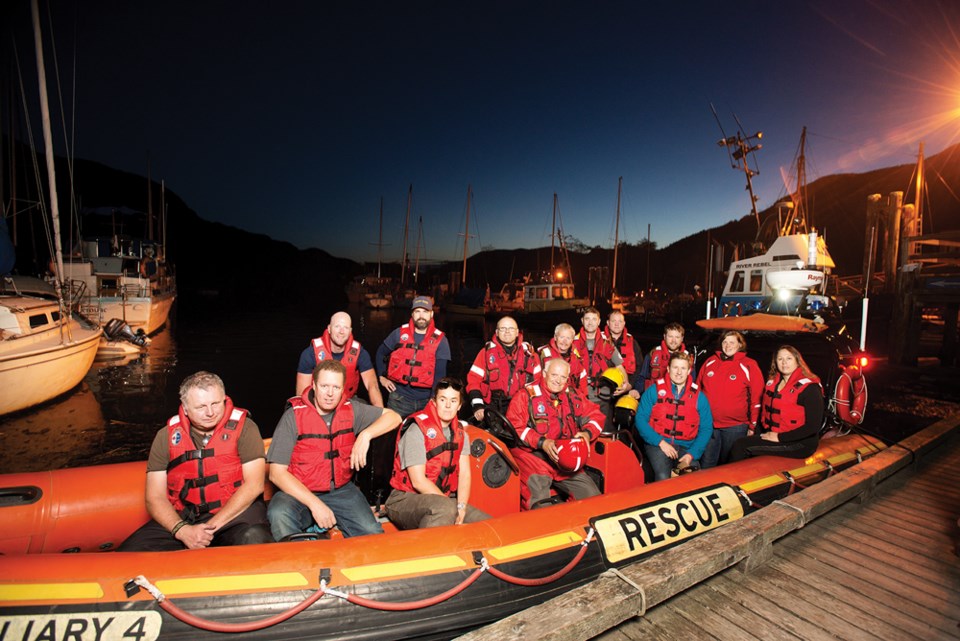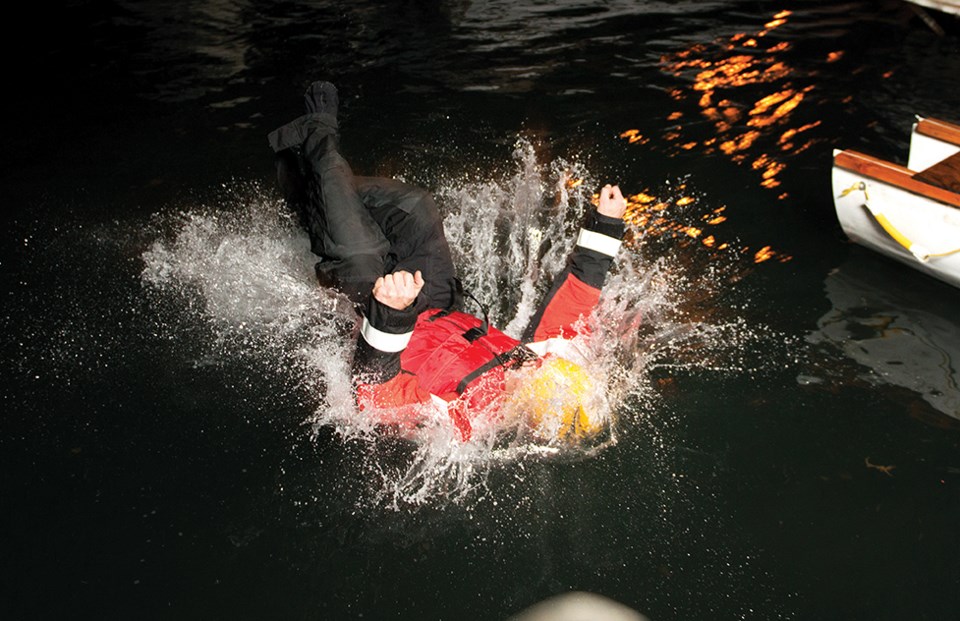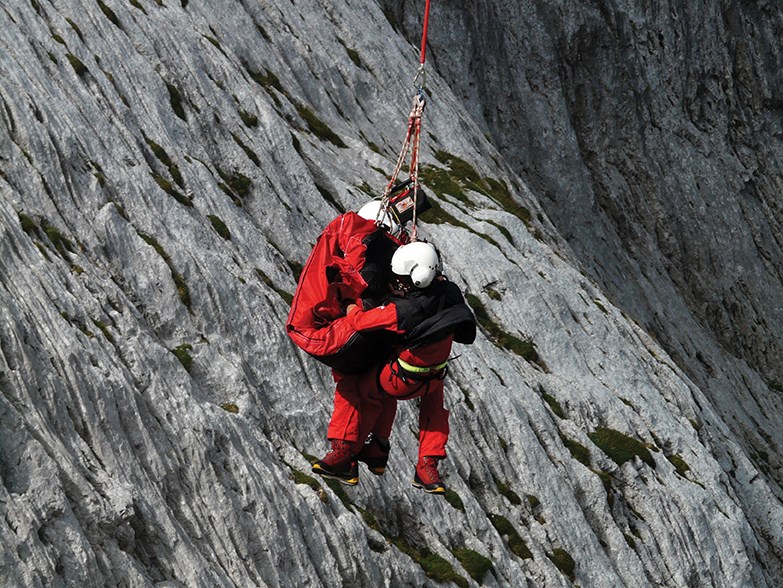In the last 10 years, the number of calls for help to Squamish Search and Rescue has doubled and the summer of 2018 made the local unit the busiest in the province.
Last summer, Squamish SAR responded to calls where seven people died. While it's up to the coroner to determine the cause of death, most of the fatalities happened near water. On July 3, 2018, there was the highly publicized incident at Shannon Falls, where three people died at the popular viewpoint. Other deaths included drownings at Alice Lake, on Ashlu River and in Rubble Creek, the latter of which both Whistler and Squamish SAR responded to.

The president of Squamish SAR, BJ Chute, said they don't know why there were so many deaths last year.
When Chute joined Squamish SAR in 2011, the number of calls they typically got in a year was just over 50. Now, the outdoor recreation capital of Canada sees 100, with most incidents on the weekend and in summer.
"I've been in emergency services my entire life, and the one thing I do know for certain is when you have more people, the more emergencies are going to take place," Chute said.
From the May long weekend until the rainy season starts in September or October, Chute said, the 60 SAR volunteers are responding to the bulk of calls.
"We're more of a summer-based team, which I think makes sense given the geography of where we are," he said. "With the busiest areas being where you expect: around the Stawamus Chief, Sea to Sky Gondola area.
"Our terrain here gets very rugged very quickly, and I think people need to recognize they could be out on their own for a very long time before help arrives... With an increase in cell phone coverage, it is easier to contact emergency services. Whether that's a factor or not, I don't know. Certainly even to expect a response immediately is unrealistic. We are still a volunteer-based group and that aside, just accessing the terrain can be challenging."
In the last year, Squamish SAR has started tracking where the people they help are from. The majority, Chute said, are not from Squamish.
"We're pretty close to Vancouver and people are discovering the Sea to Sky Corridor and the easy access to it. It's just going to continue to have an impact on us," he said.
As for the Royal Canadian Marine Search and Rescue (RCM SAR), who respond primarily to calls from those on Howe Sound, their calls for help are decreasing.
"It's kind of funny because ground SAR is ramping right up and marine SAR, it was looking like we were ramping right up for a while — certainly nowhere near the number of calls they have — but then one year it fell off the precipice," Scott Shaw-MacLaren of Station 4 Squamish said.
Part of that is because the Coast Guard is the primary marine rescue agency, but RCM SAR has also seen a decrease in false alarms. The closest Coast Guard base is in Kitsilano and there's a hovercraft base at Sea Island. On Howe Sound, there's a RCM SAR base in Squamish, Horseshoe Bay and Gibsons.
"The last couple of years have been quite a low volume," he said. "We've had some pretty big tasks, like the one in February, we actually saved two lives after they were blown completely out of Darrell Bay."
The discrepancy between ground and marine SAR comes down to easy access. Shaw-MacLaren also said it's part of the marine culture around the world to assist fellow boaters in need.
"Other boaters in the area are usually the first ones on scene to provide assistance," he said, with RCM SAR trying to respond within 20 minutes.

Shaw-MacLaren recommends keeping a marine Very high frequency (VHH) radio onboard of vessels in case of an emergency. Then, anyone with VHF on their boat — from Coast Guard to RCM SAR to pleasure crafts — can hear and respond to a distress signal.
With extra helping hands, RCM SAR doesn't have a way of telling how many emergencies there are on the water. But come winter, when there are far fewer vessels in Howe Sound, RCM SAR gets more calls.
"The more vessels there are on the water, potentially the more help there is available. Often, we expect more calls in the summer, but a lot of our bigger dispatches seem to happen in the winter because there is nobody else on the Sound. When somebody has a broken down motor or the weather's bad and they're adrift, there's nobody around to help them," he said.
So 30 crewmembers are at the ready, with an additional eight volunteers in training. It can take up to a full year to be properly trained as a RCM SAR volunteer. They also provide courtesy inspections for pleasure craft to help boaters make sure they're compliant and to give safety recommendations. Shaw-MacLaren also hopes to put signs near the boat launch with direct contact information for emergency services.
"Even if we only got one call all year, and it's the difference between life and death, it's just as important to have a fully trained SAR agency as if there were 100 calls," he said.

Other search and rescue numbers are on the rise. In 2018, two Squamish SAR volunteers — Christine Strub and Cheryle Bass — were honoured for giving the most AdventureSmart presentations in the province. Together, they were the first to reach more than 10,000 people each with their prevention talks, as they educate people on how to prepare themselves for the outdoors. That number is more than 13,000.
"It's super exciting to see in some form how many people you were able to reach," Strub, Squamish SAR's prevention co-ordinator, said. "Prevention is very hard to measure because if you prevent it, you don't see it. It's kind of the opposite of what happens in Search and Rescue."
Strub and Bass became members of Squamish SAR at the same time. Strub joined after watching a SAR presentation at Alice Lake Provincial Park. Bass, who had been dating a SAR volunteer and often joined him when calls interrupted their plans, officially joined seven years ago. Since then, the two women have offered their prevention talk to schools, at trailheads, the farmers' market — anywhere people would listen.
Their goal was never to give the most presentations, and both Strub and Bass were surprised to learn they had. Instead, their mission primarily focused on children, who Strub said are very receptive to their message.
"If they can have the knowledge and they can start getting it in kindergarten, it's ingrained in them. And they do take it home to their parents," Bass said.
They've heard of local children as young as five being separated from their families outside, but thanks to their prevention talks, SAR didn't need to be called. The family found them, safe and sound.
"It just really feels good to know we're having that kind of an impact on children. It is prevention, so we sort of laugh and say we're trying to put ourselves out of a job," Bass said with a chuckle. "Which we'll never do, because accidents happen. It's just a matter of if you have the training, if you go out prepared, then when a bad thing happens, you still are the best prepared you could be. If you have to stay out overnight, you have the equipment you need. You can make the best of a bad situation if you are prepared."
This year, AdventureSmart BC also launched an app for people to share their plans with friends via smartphone. Find more information at www.adventuresmart.ca/tripplan.htm
Fast facts:
Squamish SAR's prevention co-ordinator recommends the Three Ts: Trip planning, training and the essentials to stay outside overnight.



